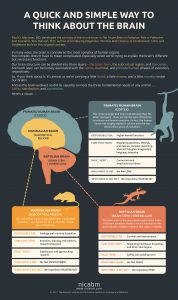Mental Health during the Pandemic.
Mental health is getting an increasing amount of attention as people worldwide cope with the Covid-19 pandemic. This heightened attention to mental health is a good thing, and according to many mental healthcare professionals, long overdue. For far too long, there has been a stigma around the topic of mental health (also referred to by many healthcare professionals as brain health or brain/mental health). That stigma has prevented many adults from seeking the mental healthcare they need for themselves or their loved ones. Fortunately, that hesitation is changing for the good.
The Covid pandemic–with all the medical and psychological traumas and hardships it has wrought on the world–has highlighted the importance of mental health and its link to physical health. As the pandemic has made all too clear, the brains of young, middle-aged, and older individuals are vulnerable to illness just like any other organ in the body. Studies, surveys, and healthcare provider reports have all indicated that anxiety, depression, and other brain illnesses have increased among adults, adolescents, and children since the start of the pandemic.
Stress, isolation, fear, disorientation, and an overload of bad news or social media can affect your brain health, just as a poor diet can affect your heart health. Your brain, just like any other organ, needs health care when it falls ill. Seeking the right medical care and therapies when your mental health is suffering is as critical as seeing a doctor when you break a bone.
Your brain is the powerhouse of your body. It drives your other organ systems. This vital organ also controls your moods, emotions, behaviors, decision-making, and more.
Good healthcare does not separate your mind from your body. Committed healthcare providers are striving to eliminate any and all fear, shame, embarrassment, or misconceptions that their patients may feel in seeking mental health care. Committed healthcare providers are encouraging all their patients to care for their mental health as much as their physical health.
If you are experiencing a mental health concern–anxiety, depression, an eating disorder, trauma- and stressor-related illness, obsessive-compulsive and related disorders, substance-related and addictive illness, or any other brain illnesses–you should promptly contact your primary care provider. Your provider will discuss helpful therapies and medications and can refer you to therapists or other medical specialists who will become your healthcare team.
Many different types of healthcare providers are committed to mental health and brain illness, including psychotherapists, psychiatrists, master-level counselors, and social workers. There are many effective therapies and medicines for addressing mental illness. Talk therapy, cognitive-behavioral therapy (CBT), and exposure therapies are some effective forms of treatment. Medications such as anti-depression drugs and anti-anxiety drugs can impact one’s brain chemistry in a positive way. It is essential to take action before an illness gets worse and becomes debilitating.
Strengthening Your Mental Health During Covid, Treatment, and Beyond
It is critical that you receive mental healthcare treatment when you are feeling ill. In most cases, mental health illnesses will not get better without professional care. Still, there are things you can do to build on the treatment plan your providers set up for you, including:
- Exercise regularly. Regular physical activity has many benefits for your muscles, ligaments, and organs, but also your brain. Scientists believe that the increase in blood flow that occurs during physical activity is beneficial to brain cells. Multiple research studies indicate that people who exercise regularly experience better mood control and have a lower risk of feeling anxious or depressed or developing memory loss and dementia.
Aim to exercise several times a week for 30-60 minutes either by walking, swimming, biking, or doing any other moderate activity that increases your heart rate above your sitting rate. - Get plenty of sleep. Sleep plays a critical role in brain health. Although we do not yet fully understand all the complexities of how sleep works, some theories are that sleep helps clear abnormal proteins in your brain. Sleep also consolidates memories, which boosts your overall memory and brain health. You should try to get 7-8 hours of consecutive sleep per night.
- Eat a Mediterranean diet. Diet plays a significant role in brain health. Medical studies indicate that the Mediterranean diet might be optimal with its emphasis on plant-based foods, fish, whole grains, and healthy fats, such as olive oil.
- Stay connected to loved ones and remain socially active. Social interactions help ward off stress and depression. Stay connected with loved ones, friends, and people who share your interests, especially if you live alone. If you cannot meet in person, use Zoom to see people’s faces, share photos of happy memories, talk about things and events that make you happy such as music, art, pets, plants, films, and more.
- Practice being positive. It is not always easy to cultivate and retain a positive outlook, but this can be achieved with practice. Reach out to someone who would benefit from your caring gesture; keep a gratitude journal for jotting down all that is good in your life when you wake up and before you go to sleep; walk outside and note the wonders and miracles of Nature.
- Avoid alcohol and recreational drugs. When you are treating a mental illness, alcohol and recreational drugs should be avoided. They can worsen symptoms of depression and anxiety.
- Join a support group that your therapist recommends. Some people find that connecting with others who are dealing with the same challenges can be very helpful. Check with your therapist for suggestions.
If you are experiencing a mental health illness or know a loved one who is, read our website pages on Mental Health and take action today.
Catawba Valley Healthcare offers a wide range of mental health services. Our team of professionals includes Primary Care providers, MD-Psychiatrists, Masters’ Level Psychologists, Licensed Behavioral Health Therapists, Licensed Clinical Addiction Specialists (LCAS), Registered Nurses, Physician Extenders, and Licensed Clinical Social Workers. We take a whole-person, comprehensive, integrated approach to health care. We know how critical mental health is.
Call us today at Catawba Valley Healthcare at (828) 695-5900.


